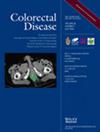摘要
目的 保括约肌直肠癌切除术后出现的肠道功能障碍(通常称为低位前切除综合征(LARS))严重影响患者的生活质量。预防这种情况的发生对医疗团队来说至关重要。包括肛门生物反馈疗法在内的术后盆底康复治疗已显示出缓解 LARS 既定症状的潜力。本试验旨在评估因癌症接受保留括约肌直肠切除术的患者在恢复排便连续性之前进行盆底康复治疗对预防 LARS 的效果。 方法 CONTICARE 是一项全国性多中心随机试验。接受保留括约肌的全直肠系膜切除术且造口失禁的患者(n = 174;每组 87 例)将在造口关闭前被随机分配到康复组或对照组。康复组将按照标准化方法接受系统的盆底康复治疗,包括造口关闭前的四次治疗和造口关闭后的六次治疗。对照组将接受标准的后续护理,包括回肠造口关闭后的症状治疗。主要结果指标是 LARS 的严重程度,在 6 个月时使用专用的 LARS 评分进行评估。两组患者还将在 6 周、6 个月和 1 年时比较粪便失禁症状、生活质量以及与生物反馈疗法相关的并发症。 结论 盆底康复治疗可以预防 LARS,从而改善直肠切除术后患者的症状控制和生活质量。肛门锻炼与生物反馈疗法的结合已被广泛研究,且无不良反应报告,这表明预期的益处大于任何潜在风险。 临床试验注册:注册号 NCT03876561,2019 年 3 月 15 日首次发布。ClinicalTrials.gov.Aim
Bowel dysfunction following sphincter-preserving rectal resection for cancer, commonly referred to as low anterior resection syndrome (LARS), significantly impacts patients' quality of life. Preventing this condition is essential for healthcare teams. Postoperative pelvic floor rehabilitation, including anal biofeedback therapy, has shown potential in alleviating established LARS symptoms. This trial aims to evaluate the effectiveness of pelvic floor rehabilitation prior to bowel continuity restoration in preventing LARS in patients undergoing sphincter-preserving rectal resection for cancer.
Methods
CONTICARE is a national multicentre randomized trial. Patients who have undergone total mesorectal excision with sphincter preservation and a defunctioning stoma (n = 174; 87 per arm) will be randomly assigned to either the rehabilitation or control group before stoma closure. The rehabilitation group will receive systematic pelvic floor rehabilitation, comprising four sessions before and six sessions after stoma closure, following a standardized approach. The control group will receive standard follow-up care, which includes symptom-based therapy after ileostomy closure. The primary outcome measure will be the severity of LARS, assessed using the dedicated LARS score at 6 months. Comparisons of faecal incontinence symptoms, quality of life and complications related to biofeedback therapy will also be evaluated at 6 weeks, 6 months and 1 year between the two groups.
Conclusion
Pelvic floor rehabilitation has the potential to enhance symptom management and quality of life for patients following rectal resection by preventing LARS. The combination of anal exercises and biofeedback therapy, which has been extensively studied without reported adverse effects, suggests that the anticipated benefits outweigh any potential risks.
Clinical Trial Registration: Registration number NCT03876561, first published on 15 March 2019. ClinicalTrials.gov.

 求助内容:
求助内容: 应助结果提醒方式:
应助结果提醒方式:


